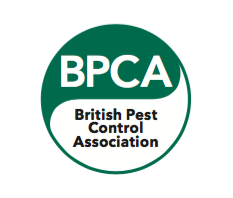Pests in Student Accommodation
In Pests

The start of the new academic year was slightly different for new and returning university students in 2020. Students in halls and rented accommodation had to adjust to new rules and regulations as a result of the impact of Covid-19. With many students restricted to their student accommodation and attending virtual classes, university houses and halls are busier than ever. And with more students, comes more pests.
Naturally, the spread of coronavirus is a concern that occupies many university-goers. Hence the need for stricter rules within student accommodation. However, with coronavirus at the forefront of everyone’s minds, the awareness of pest infestations has largely been dismissed, even though these new conditions are allowing these pests to thrive. Here at PESTUK, we believe that students should be aware of the risks pests such as bed bugs, rats and cockroaches pose and how to protect themselves.
Rats
Rats are a frequent issue in university accommodation, simply due to the sheer number of people in one space. More people means more food, and more waste, which attracts rodents. An abundance of food sources, as well as shelter, enables them to breed, and keep their young alive and thriving. Due to the rapid rate at which rats reproduce, an infestation can take root in a short space of time.
With more university students confined to their halls and rented accommodation because of the new COVID restrictions, the build-up of refuge is an increasing problem.
What you can do:
- Keep kitchens and food areas clean and free from clutter or crumbs. Kitchens are a prime target for rats.
- Keep food stored in airtight containers.
- Keep your bins sealed and don’t leave full plastic bin bags out in the open (rats will chew through these).
- If excess rubbish is an issue, speak to your landlord, agent or accommodation staff. Let them know your concerns.
- If you encounter evidence of rats or mice, act immediately – rodents can carry nasty diseases that can spread to humans. Alert your agent, landlord, or a member of staff and call a reputable pest control company.
Bed bugs
Bed bugs are parasitic insects that feed exclusively on blood, preferably human blood. Although bed bugs do not transmit diseases, their bites leave itchy raised bumps of the skin that can irritate. What’s more, they can cause severe allergic reactions in some people, which can be life-threatening.
Bed-bugs can hide in clothes, suitcases, furniture and other belongings and can therefore travel from one destination to another with ease. They are often found in many shared accommodation habitats, such as hostels, blocks of flats, hotels, holiday camps, and, increasingly, student accommodation.
What you can do:
- Inspect your room – check around the bed frame and mattress for any signs of blood spots on the bed line, headboard, or on the bottom side of the mattress.
- Using a mattress protector specially designed to inhibit bed bugs is always a good idea for student accommodation.
- Keep your room clean, and don’t leave dirty laundry lying around on the floor. Clutter on the floor can be a good nesting area for bed bugs.
- As soon as you suspect there are bed bugs, alert your landlord, agent or the university staff. The important thing is not to be embarrassed. It is likely that they were there before you arrived and a combined effort is needed to get rid of them.
Cockroaches
Cockroaches are another pest likely to be found in student accommodation, especially kitchens. Common places to find cockroaches in the kitchen are behind fridges and freezers where they are attracted to the heat of the motors, under the sink, and under or around kitchen appliances such as microwaves and kettles.
Cockroaches can contaminate food, utensils, and preparation surfaces as they move. They are capable of carrying organisms that cause food poisoning in humans and other harmful bacteria.
What you can do:
- Inspect the rooms – check surfaces for shedded skin, droppings and dark stains which could indicate cockroach excretion. Cockroaches also emit an unpleasant odour, and this tends to linger on objects or surfaces that they have contaminated.
- If you suspect that you have a cockroach inspection, let the maintenance company, landlord or estate agents know. Don’t be tempted to use DIY products. Call a reputable pest control company to treat the infestation and get to the root of the issue.
If you’re a student and worried about a pest infestation or issue in your accommodation contact your maintenance company, accommodation team or landlord as soon as possible. A lot of pests pose a risk to human health and should be dealt with promptly.
PESTUK

PESTUK are full members of the BPCA, the governing body for pest control in the UK. Using a BPCA member company ensures you have a qualified, fully insured company treating your pest problem.
Call us on 0330 100 2811 or email us at services@pestuk.com for free local pest control advice or to book an appointment for pest control services near you.
PESTUK also have offices in Bracknell, Edgware, Salisbury, St Albans, Stevenage, Swindon, Thame, Wantage, Ware, and Watford.
For an updated price list for all of our services please click here.
NEXT/PREVIOUS:
Protecting Children and Pets When Treating for Pests »
The worst pests in London «

